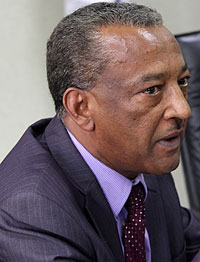IWD: call for financial inclusion for women
ON BEHALF of Dr. Donald Kaberuka, the AfDB President, we are honoured to join Rwandans as we celebrate this year’s International Women’s Day.

Negatu Makonnen
